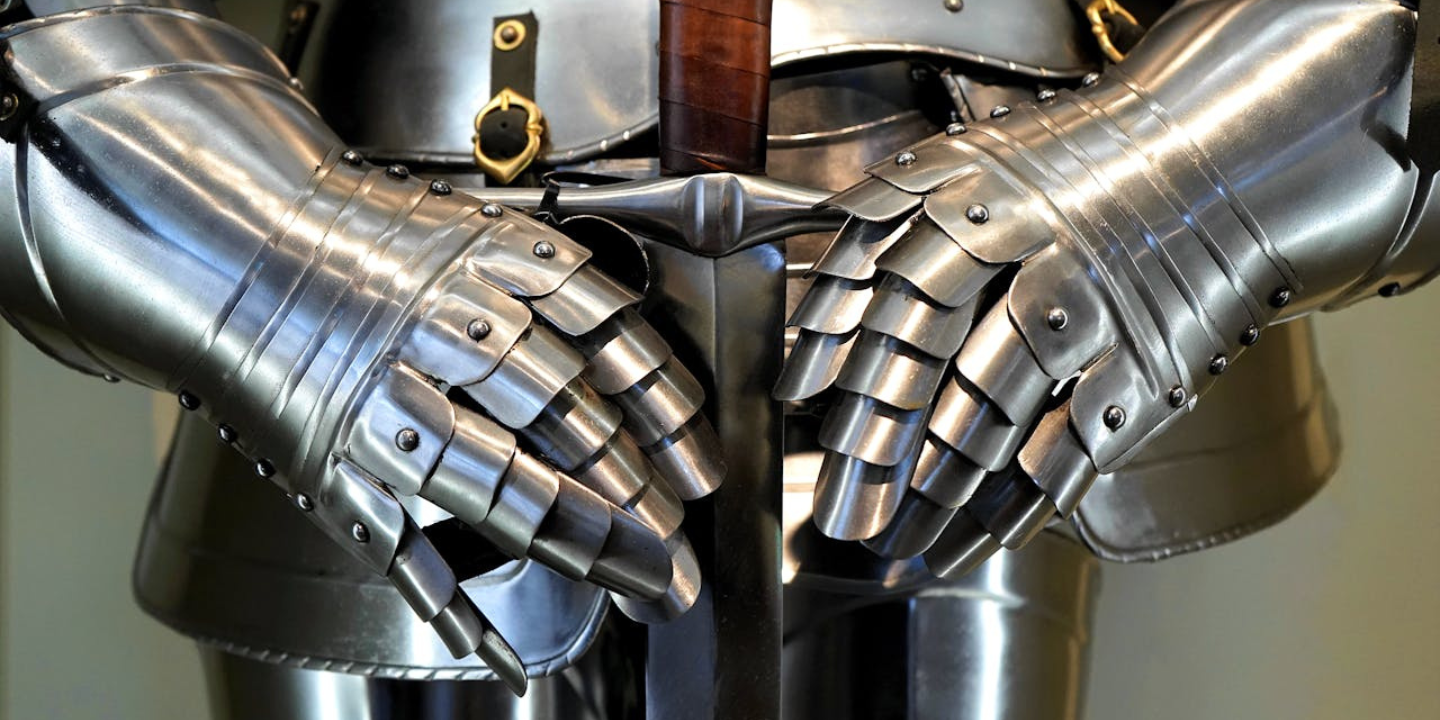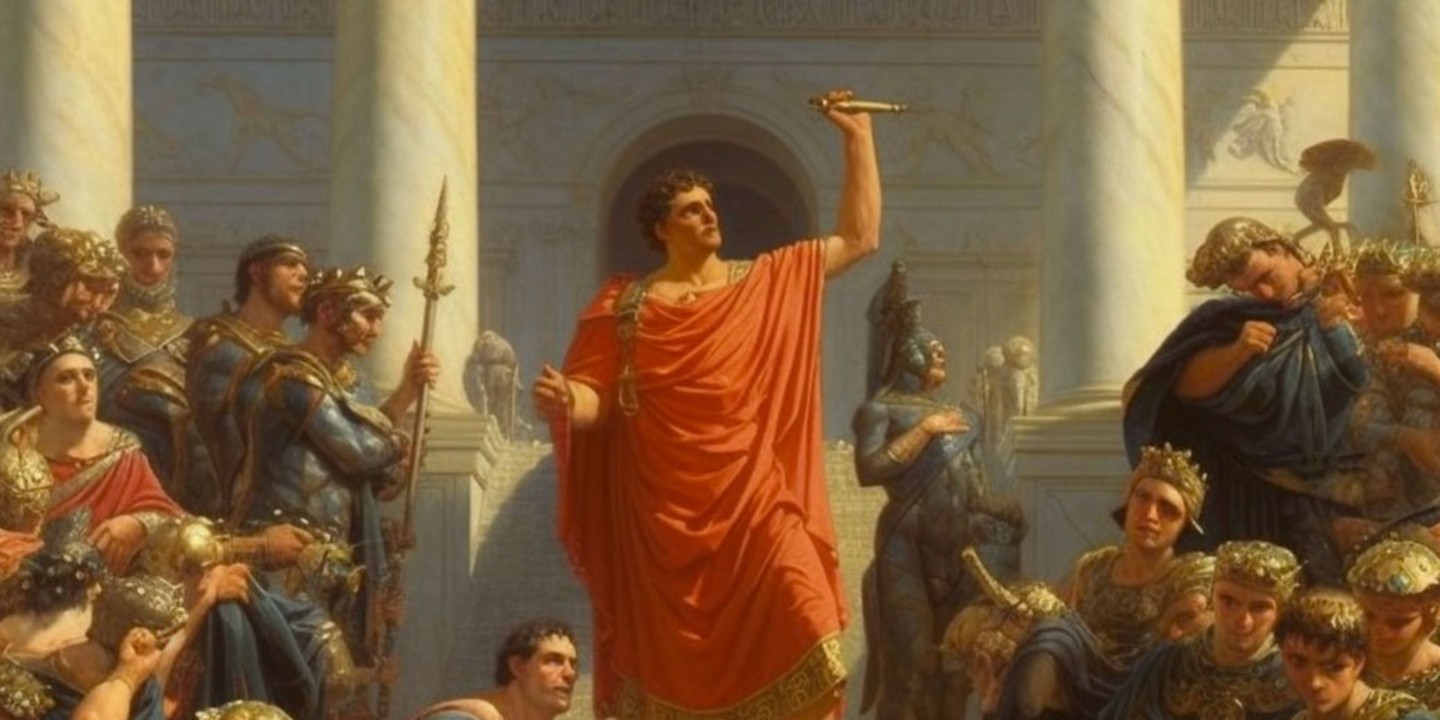From Forgeries to Fakes
You might think hoaxes are a modern-day occurrence, but they’ve been around for ages. In fact, the field of history is full of forgeries and fakes, and some of them have even fooled top scholars and archaeologists. Would you fall for these hoaxes?
 Unknown authorUnknown author on Wikimedia
Unknown authorUnknown author on Wikimedia
1. Beringer’s Lying Stones
Is the world’s oldest natural history forgery technically historically valuable in itself? Well, that’s what happened with the 1725 lying stones, where Johann Beringer, a German professor, claimed to discover limestone rocks engraved with everything from images of animals to Hebrew script. Turns out he did, in fact, find the stones, but his colleagues had forged and planted them to humiliate him.
2. Hercules Sarcophagus
If you’re a history buff, you’ve probably heard of Hercules. Well, in 1869, an Italian forger decided to create a Roman-style sarcophagus. He claimed it contained the remains of Hercules and was even sold to museums as genuine. It was only later on that the experts noticed the falsity.
 Rosario Esposito La Rossa on Unsplash
Rosario Esposito La Rossa on Unsplash
3. The Tasaday Tribe
In 1971, a Filipino government minister stated he had discovered an isolated tribe. This wasn’t uncommon, as there are lots of tribes living all around the world, and this one supposedly lived in the caves on Mindanao. But this is where it gets crazy! When the minister returned later, he found the tribe dressed in modern clothes. Turns out they were a fake media attraction planted by the government.
4. The Cardiff Giant
The Cardiff Giant is one of the most well-known historical hoaxes out there. It began in 1869 when workers allegedly dug up the body of a 10-foot giant. Everyone was convinced that this was proof of biblical giants and flocked to see it. It was later revealed that the statue was carved by an atheist named George Hull to make fun.
 Bain News Service, publisher on Wikimedia
Bain News Service, publisher on Wikimedia
5. Shinichi Fujimura
Shinichi Fujimura was a celebrated Japanese archaeologist, at least at first. He successfully found numerous prehistoric artifacts, including tools dating back thousands of years. That was until a journalist got him on film planting fake artifacts.
6. The Well to Hell
There are numerous sites claiming to be gateways to hell, but this 1989 occurrence might be the most popular. Essentially, an American broadcaster shared an interesting story about the Soviets digging far too deep in Siberia. He claimed that they heard screaming souls within, but of course, this was just a fabrication, as no such audio exists.
7. Crystal Skulls
If you’ve seen the Indiana Jones movie, you’re probably familiar with the concept of the crystal skulls. Well, several skulls were carved and passed off as ancient Mesoamerican artifacts. But when they were later analyzed, it was clear to see that they were made with modern tools sometime in the 19th century.
8. Shaun Greenhalgh
Fujimura wasn’t the only archaeologist to fake artifacts, as Shaun Greenhalgh actually made a profession out of forgery. He was specifically an art forger and created all sorts of fake artifacts from Renaissance sculptures to Assyrian reliefs. Major museums even fell for his fakes, and he was eventually investigated, leading to a police raid that uncovered his workshop.
9. The Kensington Runestone
In 1898, a farmer made an impressive discovery. He found ancient Norse runestones, which had major ramifications as they indicated the Vikings had, in fact, reached America. Judging by the title of this article, you know that wasn’t the case. It turns out the stones used modern-day grammar, but it’s unclear who was responsible for the forgery.
10. Loch Ness Monster
Whether you believe in the Loch Ness monster or not, one of the most famous fake photos is the 1934 surgeon’s photo. This picture shows the beast emerging from the lake, but it was revealed a decade later that the photo was made with the use of a toy submarine. Turns out the person who made the photo had a bone to pick with the newspaper, as they had mocked him in the past.
11. Drake’s Plate of Brass
In 1936, in California, someone discovered a metal plate supposedly left by Sir Francis Drake in 1579. It was initially accepted as an authentic relic, but it was only after a more modern-day analysis that the reality became clear. The plate was recently made but had surprisingly fooled prestigious institutions such as the University of California, Berkeley.
 Robert Stupack (AB94904) on Wikimedia
Robert Stupack (AB94904) on Wikimedia
12. The Piltdown Man
The 1912 Piltdown man is another well-known hoax. It began when a man named Charles Dawson supposedly found the missing link! For a long time, scholars had been searching for proof indicating the evolution from apes to humans. The Piltdown man was that proof until 1953, when it was finally revealed to be a combination of an orangutan jaw and a human skull.
13. Archaeoraptor
Fake dinosaurs have been around for ages, and in 1999, scholars were convinced that another creature was joining the ranks. The fossil was another missing link, indicating a relation between dinosaurs and birds, and was found in China. It was later revealed to be just a dinosaur tail combined with a bird's body.
14. Tiara of Saitaphernes
In 1896, the Louvre got its hands on a very special tiara that dated back to the 3rd century BCE. It supposedly belonged to a Scythian King named Saitaphernes. However, a Russian archaeologist took a closer look and later exposed it as a modern forgery.
 Unknown authorUnknown author on Wikimedia
Unknown authorUnknown author on Wikimedia
15. Calaveras Skull
It seems that skulls are just easy to forge, and with that in mind, consider the Calaveras Skulls. These were found in California gold mines and may have been proof of human presence as old as a million years. However, scientists doubted that reality, and it was later proven to be a hoax as something buried by miners.
16. Bigfoot
Whether you believe in Bigfoot or not, some of the evidence presented on his behalf has been proven to be a hoax. For instance, many believe the 1967 Patterson Gimlin film is a person in a costume. Plus, there are many instances of people faking footprints.
 Roger Patterson and Robert Gimlin on Wikimedia
Roger Patterson and Robert Gimlin on Wikimedia
17. Etruscan Warriors
As museums do, the Metropolitan Museum of Art in New York purchased life-sized terracotta warrior statues. Turns out these statues weren’t ancient at all, and were created with modern tools. This wasn’t discovered until decades after the purchase.
18. The Cottingley Fairies
There’s a very famous series of photos taken by two English girls. They supposedly took photographs of themselves playing with fairies, and the pictures were so convincing that even greats like Sir Arthur Conan Doyle were convinced. It was only later revealed decades later that the photos were made using cardboard cutouts.
19. The Donation of Constantine
This instance involves a document forgery, specifically one detailing how Emperor Constantine donated vast territories to the pope. This essentially supported papal supremacy. It was in the 15th century that Lorenzo Valla was able to debunk the document due to the modern-at-the-time language used.
 School of Raphael on Wikimedia
School of Raphael on Wikimedia
20. Hitler’s Diaries
A German magazine named Stern decided to impress its readers with some excerpts from Hitler’s diaries. These diaries were only recently discovered and helped contextualize the horrific events that occurred. However, they were later revealed to be forged by a con artist named Konrad Kujau.
KEEP ON READING

20 Common Misconceptions People Have About The Middle Ages
It’s Not All Knights and Shining Armor. Many people romanticize…
By Farva Ivkovic Nov 4, 2024
20 Powerful Ancient Egyptian Gods That Were Worshipped
Unique Religious Figures in Ancient Egypt. While most people are…
By Cathy Liu Nov 27, 2024
The 10 Scariest Dinosaurs From The Mesozoic Era & The…
The Largest Creatures To Roam The Earth. It can be…
By Cathy Liu Nov 28, 2024
The 20 Most Stunning Ancient Greek Landmarks
Ancient Greek Sites To Witness With Your Own Eyes. For…
By Cathy Liu Dec 2, 2024
10 Historical Villains Who Weren't THAT Bad
Sometimes people end up getting a worse reputation than they…
By Robbie Woods Dec 3, 2024
One Tiny Mistake Exposed A $3 Billion Heist
While still in college, Jimmy Zhong discovered a loophole that…
By Robbie Woods Dec 3, 2024














